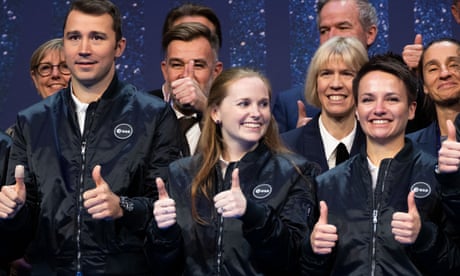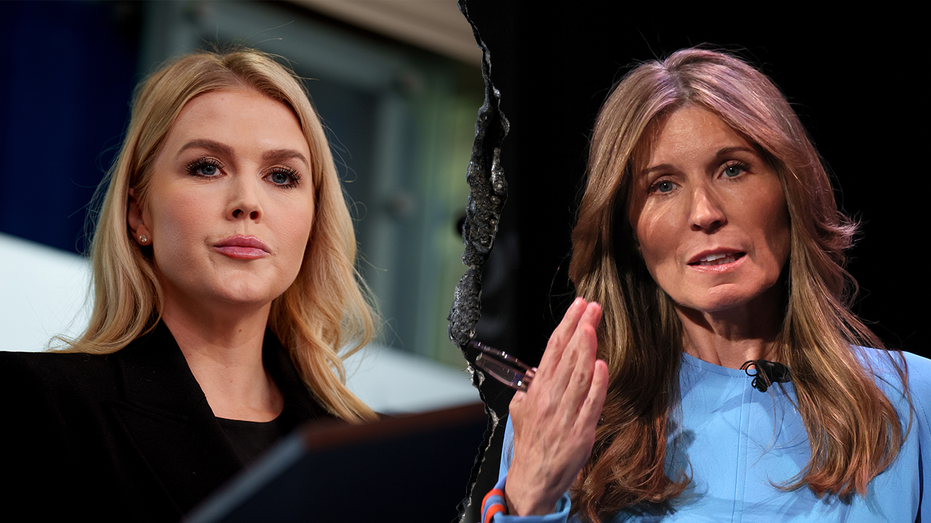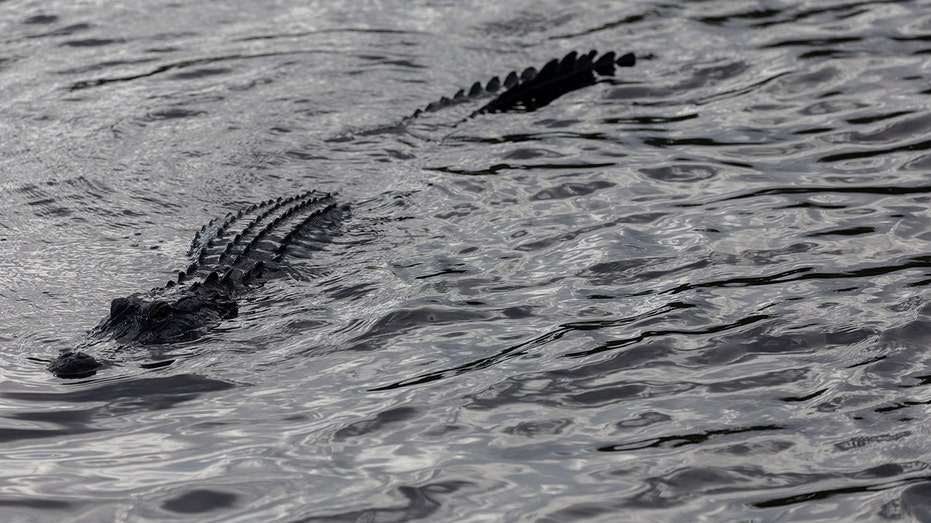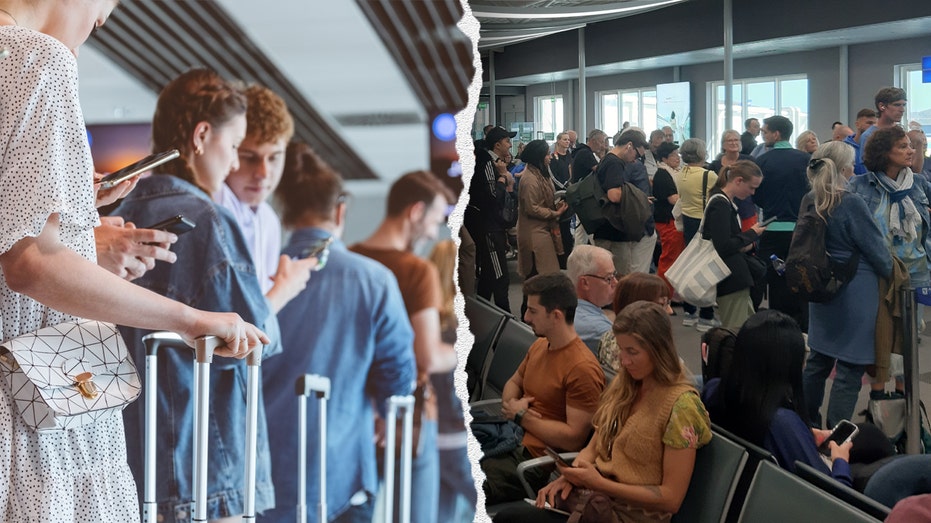- by foxnews
- 06 Mar 2025
‘So the next step is space, right?’: Australia’s first female astronaut on the year she realised limits don’t exist
‘So the next step is space, right?’: Australia’s first female astronaut on the year she realised limits don’t exist
- by theguardian
- 31 Dec 2022
- in news

In mid-November Dr Meganne Christian was cycling home from her work at the Italian National Research Agency in Bologna when her phone rang.
"I wasn't going to answer because I was riding," the Australian scientist says. Then she noticed the incoming number had a French country code. "I stopped everything, just stopped my bike in the middle of the bike path and answered."
Eighteen months earlier Christian was one of 22,500 people who applied to become a trainee astronaut at the European Space Agency - an intergovernmental space exploration organisation made up of 22 member countries and based in Paris.
So far, she'd made it through every round of the ESA recruitment process: rigorous testing in physics, maths, logic and memory; spatial reasoning testing using a joystick; psychological testing, including one-on-one and with a panel of psychologists; and a series of medical tests that lasted a week. She knew she'd made it down to the last handful of applicants - she'd had final interviews with high-ranking members of the space agency. She also knew that a decision was imminent.
On the other end of the line was the ESA director general, Josef Aschbacher. He told Christian - who was just a few weeks short of her 35th birthday - that she's been selected as one of 17 new astronauts, making her Australia's first female astronaut. (She also holds UK citizenship.)
"I feel like it's also a bit of luck that got me through. I think we probably all have some kind of impostor syndrome, right?"
Christian grew up in Wollongong, a coastal city south of Sydney, and remembers being drawn to "all things space". In primary school she owned a book about space she "read all the time" and in high school visited the Smithsonian Air and Space Museum and the Kennedy Space Centre in the United States. "I was just absolutely fascinated by it but it wasn't on my radar to actually become an astronaut because, growing up in Australia at the time, there was no space agency. So I didn't think that it was ever going to be my path."
Christian loved languages (she speaks four) and science - with maths her favourite "above everything". She practised martial arts, and, with her family, went on multi-day whitewater rafting adventures - her best trip being nine days on the Franklin River in Tasmania. She toyed with the idea of becoming an artist, an actor or an architect but settled on science - studying industrial chemistry at the University of New South Wales, where she went on to complete a PhD that explored using nanoparticles for hydrogen storage. Once her doctorate was finished she moved to Italy, where she researched a material called graphene, which is used in electronics and, increasingly, renewable energy.
But it was an experience at the southern tip of Earth that became the catalyst for Christian's journey towards space.
In 2018-19 she undertook a year-long posting to the Concordia research station in Antarctica. Concordia is a French-Italian station that sits 3,200 metres above sea level. In winter the sun doesn't rise above the horizon for three to four months and temperatures drop to -80C. Workers become completely isolated, with no possibility of receiving help from land or air.
"We got down to minus 104 degrees with wind-chill some days, and I was working outside every day," she says.
"There's also the fact that you have 100 days of full darkness and that kind of plays havoc with your body, with your sleeping. So physically it's tough. But I would say that mentally it's tougher because you are isolated. In our case there were 13 of us. We generally got along but it's just in that isolated sort of environment you feel everything more strongly. Every emotion you feel more strongly. If you're happy, you're really happy but if you feel a little bit lonely or sad, you feel really quite down. So you have to learn to deal with that."
Christian says she stayed positive by focusing on her purpose for being there - climate change research - and with help from her lifelong creative pursuits of knitting, crocheting and making music.
It was in Antarctica that she discovered something important about herself: "I never got to a point when I didn't want to go any further or where I was absolutely terrified. I was in some pretty tough situations, like having to resolve some problems outside when it was really cold, and I had to take a computer out there, so I had to be working without gloves, which is really quite testing.
"And I just realised that what I love to do is to challenge myself. I didn't actually find limits. I think they don't necessarily exist as a solid thing."
Concordia is so unlike anywhere else in the world that the ESA uses it to research missions to other planets; with its extreme conditions, it's the closest thing we have to life on Mars. While Christian was at Concordia an ESA doctor visited to conduct physical and mental tests on the winter crew, to model what a space mission might be like for astronauts.
"So that was when it all really got on my radar," Christian says. "I was doing the kind of things that astronauts would do on the International Space Station, like running various types of experiments that are not necessarily in my own area of expertise, which means a huge learning curve. And I actually really love that.
"So, I decided, 'OK, this is what I love doing in my life and it's what I want to do for the rest of my life, so the next step is space, right, after Antarctica?'"
Not long after she returned to Italy the ESA opened up astronaut recruitment for the first time in 13 years - and a childhood dream became a possibility.
Because space flights are limited, only five of the 17 recruits are career astronauts who will begin full-time training for a mission. The rest, including Christian, are reservists, who will stay in their jobs but undertake basic training at the space agency. While there is no guarantee a flight will happen - the enormous cost of space missions is the main hurdle - Christian says she's "quite hopeful".
In the meantime she will continue her research - she's exploring the use of sunlight, instead of fossil fuels, to produce hydrogen. While her work is future-focused, her creative pursuits sometimes take her to times past; on Christmas morning she joined a choir in a medieval church to sing a 400-year-old German carol.
But space is where her dreams lie. Christian says she'd love to be on the International Space Station, or any commercial space station, "running experiments for people who can't go up there themselves, but have put their life's work into setting up these experiments.
"And then, of course, I mean, everybody dreams about going to the moon, so that's definitely a dream."
- by foxnews
- descember 09, 2016
'Gate lice' run-ins have flyers demanding more airlines 'crack down' on pesky travel trend
Passengers are asking major airlines to do something about "gate lice" problem at airports. American Airlines currently has new tech to stop the line-cutters.
read more


